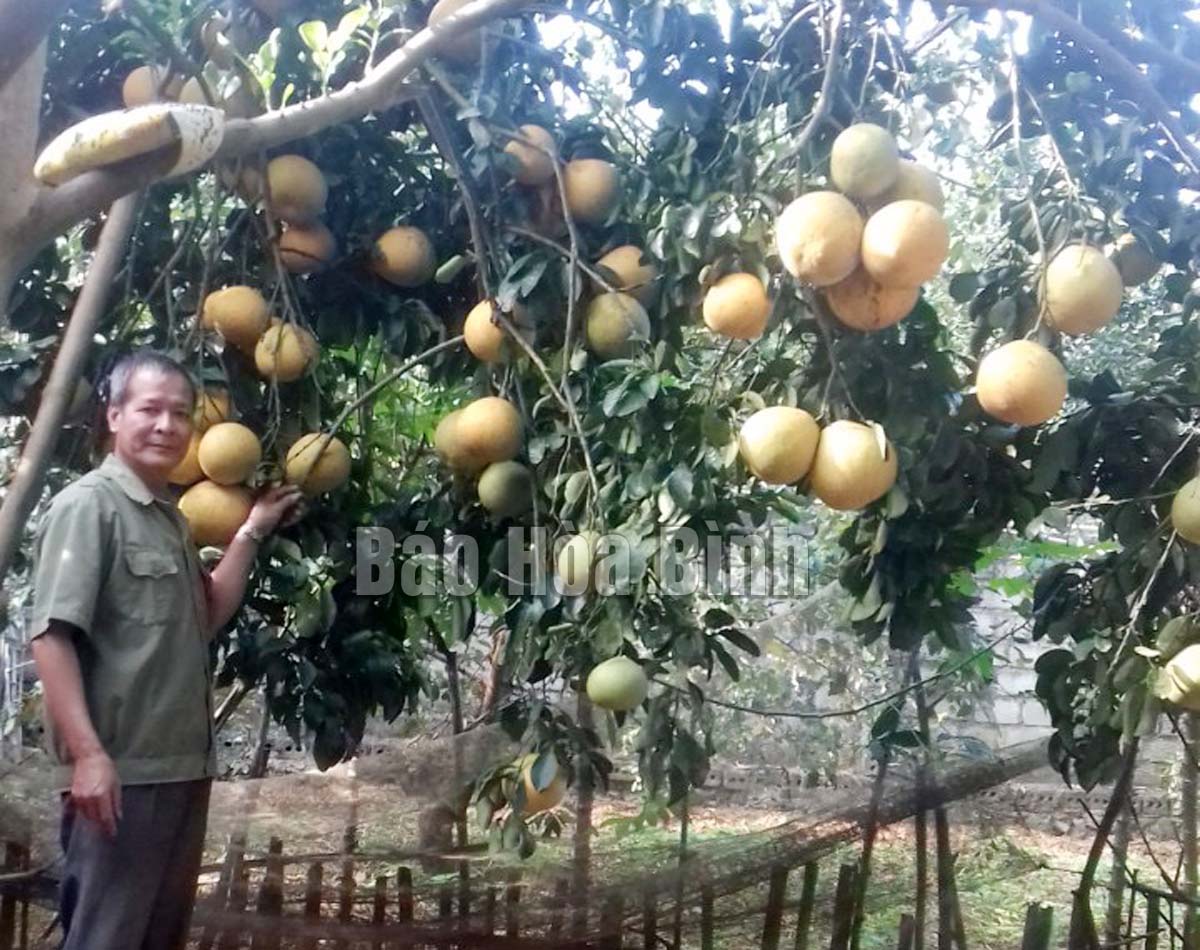(HBO) - Sweet and succulent sections and thin rind are the special features that make red-flesh pomelos grown by Tan Dong cooperative in Tan Lac district’s Dong Lai commune different from other varieties. As its quality has been gradually confirmed along with its economic value and suitability with local soil, Tan Dong pomelo was selected by Tan Lac district as one of three local products joining the OCOP Programme in 2021.
Red-flesh pomelos of
the Tan Dong organic pomelo growing and service cooperative in Tan Lac
district’s Dong Lai commune follow organic growing and caring process.
According
to Bui Van Tuan, a member of the Tan Dong organic pomelo growing and service
cooperative, technical requirements are needed to harvest a high-quality and
delicious pomelo crop. With a total area of 1.5 hectares of pomelo garden, his
family earned 350 million VND (15,560 USD) from selling pomelos last year after
deducting expenses.
The Tan Dong organic pomelo growing and service cooperative has so far had 20
hectares of organic cultivation with 25 households since 2008.
Thanks to strictly following the organic method, taking advantage of
agricultural by-products to make fertiliser, the fruits have sweet fragrances
and are succulent. They have high nutritional value, are good for health, and
easy to preserve without any chemicals. Thus, Tan Dong pomelo has been favoured
by customers within and outside the province in recent years.
Tran Hong Nang, Director of the Tan Dong organic pomelo growing and service
cooperative, said last year, the total output of pomelos of the cooperative
will reach 250 tonnes. The average selling price at the garden is 17,000 VND
per fruit. With this selling price, each member household earns between 300 -
400 million VND per hectare after deducting all expenses. It can be said that
the revenue from growing pomelo is rather high compared to many other crops in
the commune and district.
In order for Tan Dong red pomelo products to be classified as 3-star OCOP
products, the cooperative has strived to improve the quality and the design.
With the support of the provincial Farmers Association at all levels, members
of the management board of the cooperative can improve their business capacity,
receiving guidance on connection and searching for markets to stabilise output
for the product and living conditions for cooperative members.
In addition, the provincial Sub-Department of Agro-Forestry-Fisheries Quality
Management also provides assistance relating to the traceability of the
products, contributing to the protection of their brand.
There is only one month left before Tan Dong red-flesh pomelo enters the
harvest season. This year's output is expected to be between 120 tonnes and 150
tonnes, so the cooperative, as well as the locality, are proactive in making
plans to ensure the consumption of pomelo.
Vu Manh Thang, Head of the Agriculture and Rural Development Division of Tan
Lac district, said to maintain the green area and ensure the consumption of
agricultural products, the district has coordinated with Vietnam Post and
Telecommunications, Viettel and relevant agencies to introduce the district’s
agricultural produce on the e-commerce platform, assuring that it was on sale
at the right time and avoiding a stockpile. At the same time, trade promotion
activities have also been enhanced to find stable outputs for local agricultural
products.



